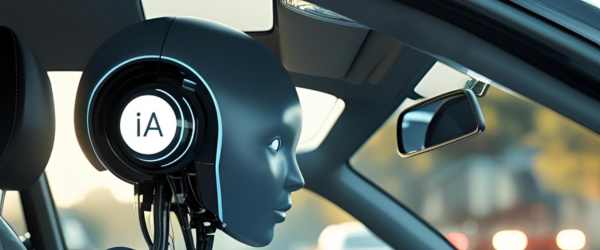Is AI Suitable for Self-Driven Cars?

The Collision Course of Innovation—Can AI Safely Drive Us Into the Future?
The idea of self driven cars—vehicles that operate without human intervention—was once a dream reserved for science fiction. But thanks to rapid technological advancements, that dream is fast becoming reality. Today, Artificial Intelligence (AI) is the engine powering the rise of autonomous vehicles, transforming the way we think about travel and transportation.
But how ready are we to hand over the wheel to AI? Can it truly replicate the instincts, judgment, and experience of human drivers? This blog explores how AI is redefining the driving experience, the benefits it offers, and the hurdles it still needs to overcome.
What Are Self-Driven Cars?
Also called autonomous vehicles (AVs) or driverless cars, self-driven cars use a combination of AI, sensors, cameras, GPS, radar, and onboard systems to operate without human assistance. These intelligent systems help the vehicle detect objects, interpret traffic signals, make route decisions, and drive safely.
Core Goals of Self-Driven Vehicles:
- Minimize human error and road accidents
- Reduce fuel consumption and pollution
- Improve traffic efficiency
- Make mobility accessible to everyone
The Role of AI in Self Driven Cars
AI acts as the brain of the vehicle. Using deep learning, computer vision, and real-time decision-making, AI enables the car to:
- Recognize and respond to its environment
- Predict the behavior of other vehicles and pedestrians
- Make split-second decisions
- Continuously learn and improve from every journey
AI mimics human cognition—but with no distractions, no fatigue, and unmatched processing speed.
Key Benefits of AI in Autonomous Driving
✅ 1. Enhanced Road Safety
Over 90% of accidents are caused by human error. AI doesn’t get distracted, drunk, or drowsy, making it a safer alternative under the right conditions.
✅ 2. Smarter Traffic Flow (Platooning)
With vehicle-to-vehicle communication, self driven cars can move in synchronized convoys, improving fuel efficiency and reducing congestion.
✅ 3. Greater Mobility Access
Elderly individuals, differently-abled users, or non-drivers benefit greatly from autonomous mobility, gaining independence and convenience.
✅ 4. Eco-Friendly Travel
AI-powered EVs (electric vehicles) can select the most fuel-efficient routes, reduce idle time, and optimize energy use.
✅ 5. Productivity on the Go
With no driving responsibilities, passengers can work, relax, or read, turning commute time into useful time.
✅ 6. Round-the-Clock Operation
AI doesn’t need rest—making it ideal for 24/7 logistics, delivery, and emergency services.
Challenges of Using AI in Self Driven Cars
While the advantages are clear, the road to mass adoption isn’t without speed bumps:
❌ 1. Complex Real-World Scenarios
AI must flawlessly operate in rain, fog, traffic jams, and unpredictable events—tasks that require high-level precision and adaptability.
❌ 2. Regulatory and Legal Uncertainty
Who is responsible if an accident occurs? Most countries don’t yet have comprehensive laws for autonomous vehicles.
❌ 3. Moral and Ethical Dilemmas
How should a self-driven car react in a no-win situation? Ethical coding is still a work-in-progress.
❌ 4. Cybersecurity Threats
Being digitally connected makes AVs potential hacking targets. A compromised vehicle could pose significant risks.
❌ 5. Public Trust Issues
Despite technological advancements, many people are not comfortable handing full control to a machine. Building confidence will take time and transparency.
So, Is AI Truly Suitable for Self Driven Cars?
Yes—with conditions. AI is absolutely suitable and central to the development of self driven cars. However, it’s not yet infallible. With ongoing research, better safety systems, and stronger regulations, we are moving closer to a future where cars drive themselves—not just safely, but efficiently and ethically.
Final Thoughts
AI and self driven cars together represent the next great leap in automotive history. While we’re still in the evolution phase, the potential to revolutionize mobility, safety, and sustainability is real. With collaboration across industries, public education, and strong policy frameworks, the age of autonomous driving will arrive faster—and safer—than we think.
Would you trust a machine to drive you home? Drop your thoughts below.
Stay tuned with us for more insights into the world of AI, mobility, and technology!










